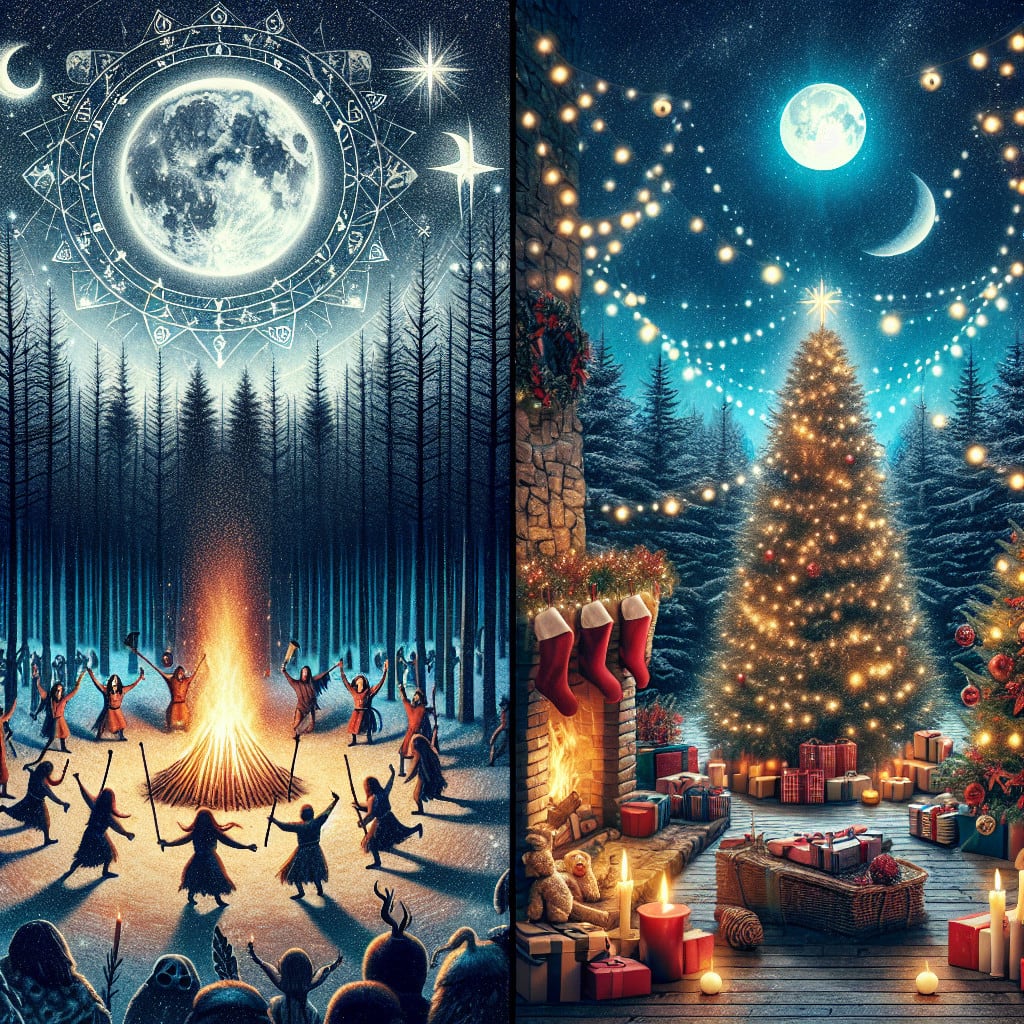Christmas is one of the most widely celebrated holidays in the world. It is often associated with religious traditions, but few people are aware of its pagan origin. In this article, we will explore the shocking pagan origin of Christmas and how it has evolved over time. We will look at how Christmas has been shaped by many different cultures, from the ancient Romans to modern day western cultures. We will also explore how some of the traditions we associate with Christmas have their roots in pagan beliefs. Get ready to uncover the surprising truth behind the festive season!

Christmas is a holiday celebrated by millions of people all around the world. While many people think of Christmas as a religious holiday, the truth is that its origins are much more connected to ancient pagan traditions. In this article, we will explore the shocking pagan origins of Christmas and how it has evolved over time.
What is the Pagan Origin of Christmas?
The origins of Christmas can be traced back thousands of years to pagan celebrations such as Saturnalia, Yule, and the winter solstice. These ancient festivals were celebrated in the Northern Hemisphere in mid-winter and featured a variety of activities such as feasting, gift-giving, and singing.
The celebration of Saturnalia was a Roman festival that honored the god Saturn. This festival usually took place from December 17-23 and involved various activities, such as giving gifts, feasting, and singing. During the festival, some people would wear masks and take part in a mock-trial of the god Saturn.
Yule was a pre-Christian Germanic celebration that took place during the winter solstice and lasted for 12 days. This festival was celebrated with a variety of activities, such as feasting, drinking, and gift-giving. Yule was also a time to honor the gods and goddesses associated with the winter season.
Although these ancient pagan festivals have changed over time, they are still the basis for modern celebrations of Christmas.
The Christianization of Christmas
The Christianization of Christmas began in the 4th century when the Roman Emperor Constantine converted to Christianity and declared it the official religion of the Roman Empire. In order to make the transition easier for pagans, the Church allowed them to continue to celebrate their traditional festivals while adding Christian symbolism to them.
In the 5th century, Pope Julius I declared that the birth of Jesus would be celebrated on December 25th. This date was chosen to coincide with the ancient pagan festivals. Over the centuries, the Christian Church has continued to add its own traditions to the celebration of Christmas, such as the midnight mass, nativity scenes, and the Christmas tree.
Modern Celebrations of Christmas
Today, Christmas is celebrated all over the world. Although the holiday has evolved over time, the pagan roots of the celebration are still visible in many of the modern traditions. For example, many of the decorations associated with Christmas, such as mistletoe, holly, and the Christmas tree, have their origins in pagan rituals.
The celebration of Christmas is also connected to the ancient pagan practice of gift-giving. In ancient times, people would exchange small tokens of appreciation during the winter solstice as a way of celebrating the return of the sun. This tradition has evolved over time and is still an important part of Christmas.
Conclusion
Christmas is a holiday celebrated by millions of people all around the world. While the holiday has taken on many religious connotations over the centuries, the truth is that its origins are much more connected to ancient pagan traditions. From Saturnalia to Yule and the winter solstice, the pagan roots of Christmas are still visible in many of the modern traditions. From decorations to gift-giving, these ancient rituals continue to shape the way we celebrate Christmas today.
The origins of Christmas are complex and often debated, but it is clear that the holiday has its roots in pre-Christian pagan traditions. The holiday’s traditions of gift-giving, feasting, decorating, and caroling have been around for centuries, and its modern-day celebration is a mix of Christian and pagan customs. Although the Christian roots of Christmas are undeniable, it is important to remember that the holiday’s celebration has its origins in pagan tradition. By recognizing and honoring the pagan origins of Christmas, we can better appreciate and understand the holiday’s history and its importance to our culture.





